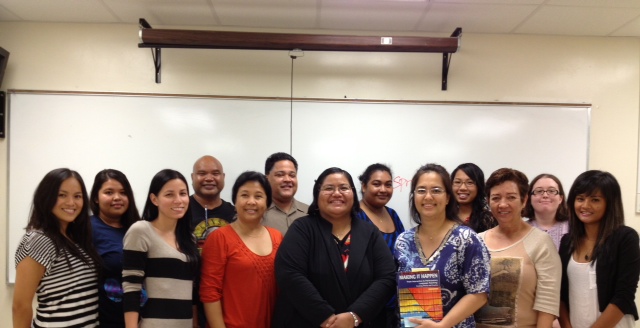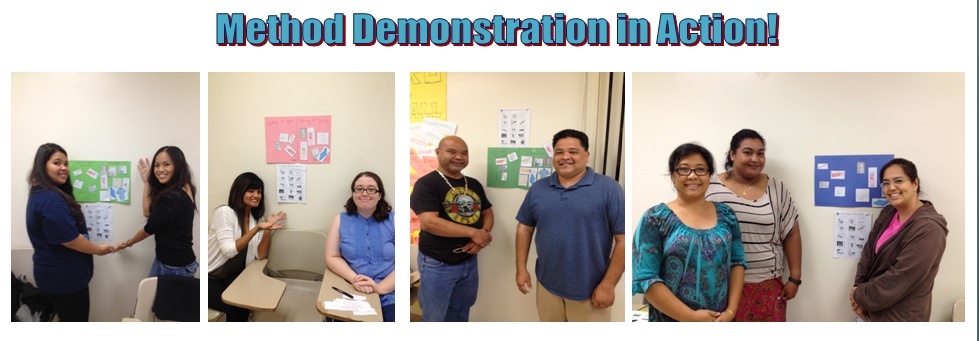


Thursday, February 7, 2013
"All Guam teachers are ESL teachers"
My Linguistics professor two years ago made the statement "All Guam teachers are ESL teachers" and it always stuck with me. I totally agree with him because every mainstream classroom will be full of different ethnic backgrounds, but not every teacher will have the background knowledge of L2 acquisition or the different strategies and methods that would help ESL students' comprehension. I am so glad that I decided to major in this content area because I feel that if I am going to be a teacher, I would like to teach students who require that extra attention. I can't wait until I student teach next semester to apply all the strategies that I've acquired throughout my college career.
Subscribe to:
Post Comments (Atom)




What an interesting perspective! To stretch your idea even further, Gem, a professor once told me that we are all English Language Learners. Such a notion makes perfect sense because even though English might be a person's firs t language, there are so many nuances and grammar rules that learning the language is a constant work in progress.
ReplyDeleteVery true!! English is one of the most difficult languages to learn. English is my first language and I still make errors when I speak.
DeleteI love that statement by your linguistics professor. English has so many rules and then exceptions to those supposed rules that it even makes my own head spin. I think errors are natural to occur, even for native speakers, but I don't think all second language learners are aware of this. My mother is friends with many people whose first language is Chinese and they always apologize for mistakes in grammar they make. I always reassure them that they speak English quite well and that people whose first language is English commonly make the same mistakes as they do.
ReplyDelete-Kaylynne
What that professor of ours has said is so true. Even after I have travelled,lived,and worked in different places, I can't be too confident that I will understand anyone on earth as long as that person speaks English. Everytime I meet a new person, it takes me a while to get used to the new speech. Even after "I got it" I don't think I know what they are talking about. I met a couple over the winter break in Burma. We were having a great conversation until we started to talk about food. The lady said she did this cooking, and that cooking, and kiwi cooking that I had no idea of. I thought I was talking to the Britts but they are Kiwis (New Zealanders)! And they said they thought I was a Filipino with an unusual accent for a Filipino. What do we know?
ReplyDeleteLwin, that is so true.When I was undergrad I usually sat in the lobby of School of Education (SOE) everyday doing my assignments or just browsing the internet. Students would come and go and some would sit and talk and these talks would turn in to long conversation and the next thing I know they would ask about my ethnicity and I would say "I am Yapese" and they would say "oh, we thought you're from Samoa or somewhere from the south pacific?" Or many would often say I am Palauan because of the way i speak. I don't think I have a Samoan accent or Palauan accent but I am always mistaken for one of the two places. Yes what do we know?
DeleteAll teachers on Guam are ESL teachers, and they are counselors, janitors, truant officers and the list goes on. Teachers in general do a lot more than just teach. They nurture the child academically and emotionally. Many ESL students have emotional issues that have to be addressed before learning can take place. At this point the ESL teacher becomes the counselor. We are all in the filled of dealing with children. Its important that we are aware of all the different "hats" we wear even if we do not have that title officially.
ReplyDelete